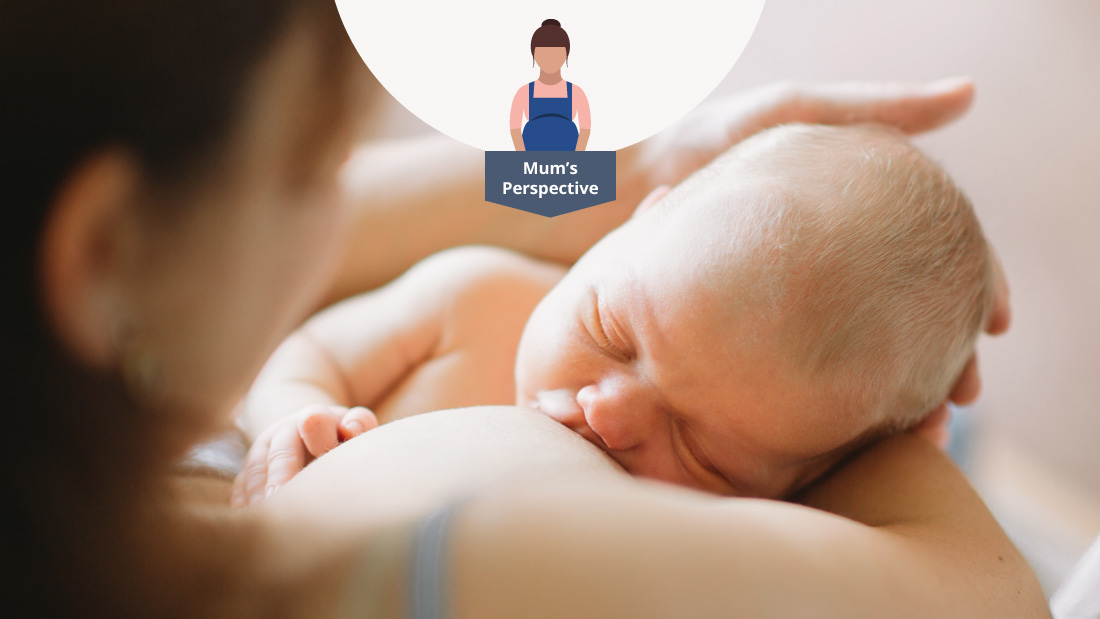
Post-placenta feeding options for your baby – breast or bottle?
Up until birth, the placenta has looked after the entire process of feeding your baby. But once labour is over, you’ll need to make some decisions about how best to nourish your baby outside the womb.
Breastfeeding is a hotly debated topic. Some people swear by it, others can’t do it and some choose to combine breast and bottle. Whatever feels right for you and your baby is the right path to go down – only you can make the decision.
Read on to get an insight into one expectant mother’s dilemma about how to approach breastfeeding.
Feeding all over again
When you think about tiny, newborn babies, you naturally picture them attached to the breast, don’t you? Well, I do. I just assumed that I would automatically breastfeed any babies that I had, but now I’m 24 weeks into my first pregnancy I’m starting to feel a little bit anxious about the whole concept.
I don’t quite know when this anxiety thing started; I think I must have had some subliminal worries that have eventually surfaced.
So, in order to try and think a bit more rationally about things, I decided to do what comes easily to me and research the whole idea.
I’m inquisitive by nature so looking at facts and figures is something I love doing. Early on in my research I found a figures from Public health England, published in 2017, showing that from July to September 2016, the rate of breastfeeding at six to eight weeks after birth rose to 44.4% from the same period the previous year when it was 43.1%
Another, earlier breastfeeding study by Unicef revealed that in 2010 breastfeeding from birth was on the up in England, with breastfeeding from birth figures standing at 83% which was a 5% increase from the 2005 figures.
Interestingly, the rest of the UK looked like this for the same criteria:
- Scotland 74%
- Wales 17%
- Northern Ireland 13%
The Unicef research also showed parents are now introducing solids later as well, thereby lengthening the time that their babies are exclusively breastfed. Cultural and societal norms also play their part with breastfeeding rates higher in these groups:
- Parents who are 30 and over
- Those who stayed in education until at least 18 years old
- Minority ethnic groups
- Living in the least deprived areas
- Those who hold professional and managerial jobs
With the figures spelt out like that, it’s a pretty persuasive picture for breastfeeding, at least initially after birth. But obviously, pregnancy isn’t about facts and figures, it’s about doing the best that you can for your baby.
One of my good friends told me a story about breastfeeding that has stuck with me for a couple of years. When she had her daughter she was 40 and she planned to feed exclusively for as long as she could. But there was a problem with her milk, it looked grey and watery and the midwife in the hospital told her that they needed to send off a sample to be tested.
Well, my friend was devastated. The early days of post-partum hormones didn’t help, of course, but the guilt stayed with her for months, even though doctors told her that her milk was fine. I’m not sure why, but it planted seeds of trepidation in my mind.
And along with that, there’s the simple, stark reality of breastfeeding. You’re pretty much tethered to your baby for as long as you aren’t using a bottle. This sounds fine to me – in theory – but again, I’ve watched friends go through the early months and some of them really struggled with not having any time to themselves to completely relax without the baby being nearby in case it needed to be fed. I don’t know how that would feel to me. I’m a very independent person and I like to make the decisions. Having a baby in charge of those decisions makes me slightly worried.
Then of course, there’s the actual feeding itself. Cluster feeds that go on for hours, right round the clock, nipples red raw and weeping from the constant sucking, mastitis that flares up agonisingly and leaves you feeling like death warmed up – and of course during all of this you still have to feed your baby. In a café if necessary, with a muslin cloth trying to conceal naked flesh and disapproving looks coming your way. Part of me wants to breastfeed just to show it’s completely natural and nothing that should be frowned upon on; that it’s wrong to question a mother’s right to feed her baby wherever she wants.
But the flip side to all the downs is compelling. Post birth, proper milk will probably take around 2-3 days to come in. Before it does, breasts secrete colostrum – a low fat, nutrient rich fluid containing carbohydrates, protein and antibodies which are super important for your baby’s health. Bonding will probably be quicker if you breast feed, at least initially, and it’s a precious, once-in-your-baby’s-lifetime moment. Once the baby has grown a bit, the rest of the world will make itself known to him and those precious, snuggly, newborn days will disappear.
I’ve got no idea if breastfeeding will work for us or not, but I feel well prepared for handling the tough side of feeding. I also know that if it doesn’t suit us and we end up swapping to bottle feeding, I’m okay with that too. After all, you can only make the best decision that you can for the baby at the time.


